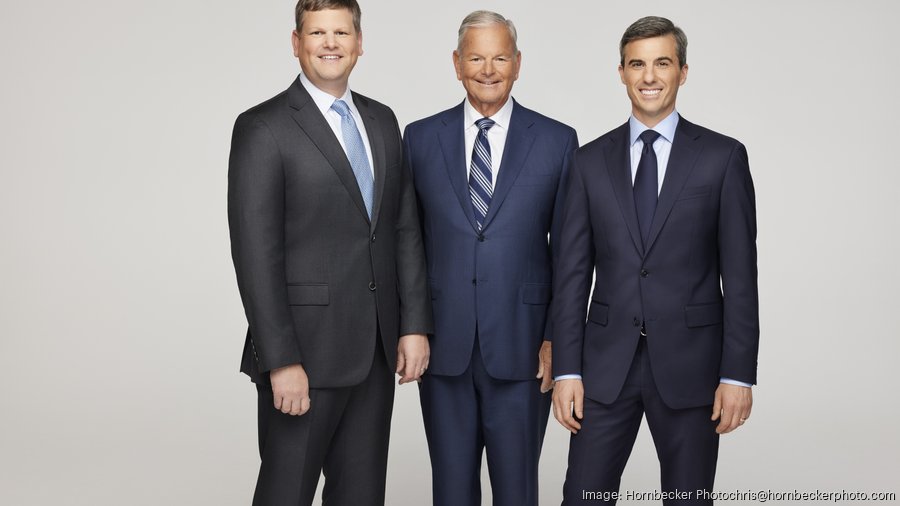Listen to this article 4 min
Spooner & Much, which has defended insurers for nearly 50 years, is taking the rare step of switching sides.
The firm, which has offices in Portland and Salem, will on Feb. 1 debut a new name — Spooner & Staggs Trial Attorneys — and a radical shift in focus to advocating for seriously injured victims in the face of what the attorneys describe as insurance industry changes for the worse.
“We just reached a point where we felt like we couldn’t help insurance companies do the right thing, in spite of themselves, and we’ve seen the rise of AI and big data making decisions and not human beings anymore,” said Tyler Staggs, a shareholder with Ralph Spooner and his son Tom Spooner.
The switch has been in the works for a couple of years, but the timing is fortuitous, given a late December ruling by the Oregon Supreme Court. The justices opened the door to negligence claims against insurers who act in bad faith in denying insurance claims. Previously, the most someone could collect was the amount under the contract and nothing more. The Moody ruling represents a game changer, giving plaintiffs a new weapon in disputes against insurers, and could open the floodgates to a host of negligence claims.
Related: Oregon Supreme Court gives consumers a new 'weapon' in lawsuits against insurers
Spooner & Much actually wrote an amicus brief in Moody on behalf of two industry trade groups, arguing that the trial court had correctly applied existing law in denying the original claim in dispute.
But Staggs and Ralph Spooner both applauded the Supreme Court ruling, which went the other way.
“The Oregon Supreme Court changed Oregon law, which is great,” Staggs said.
While it’s not unusual for individual attorneys to switch sides, especially among prosecutors and criminal defense attorneys, an entire firm making a 180-degree change is rare, quite possibly unique. Mike Dye, a Salem attorney and longtime personal injury lawyer who was often on the other side of the table from Spooner over the decades, said he was surprised by the move.
"I've never seen that where an entire insurance defense firm switches sides," Dye said. "I think they’ll do well. There’s a lot of business to go around."
Spooner said he didn't make the change lightly.
“I’m in my 50th year, so this is my life’s work,” Spooner said, adding that he has personally defended insurer clients in close to 1,000 jury trials, along with arguing close to 100 cases in the appellate courts.
“It’s a major undertaking,” Staggs said, “switching from a traditional hourly defense practice to working completely on contingency for injured victims.”
While the Moody ruling certainly will boost their chances of finding new clients, it was really changes they noticed over many years that convinced the partners to rethink their practice, they said.
“Insurance companies have a lot of data, and slowly but surely, they started to analyze it, and more and more, it played into evaluating claims and making decisions,” Spooner said. “The value of our opinions as time has gone on as honored defense counsel is still a factor about what’s a fair and reasonable amount to pay someone, but it’s becoming less and less important.”
Spooner added that his comments describe general trends, not any specific insurer clients. But there are "some bad actors, companies that try to short change people," and the Moody ruling "should put the fear of God into them."
“It’s not like I view the industry as all bad, but I can see where things can go in terms of how some of these tools are going to be used for the wrong purpose, to save money for the insurance industry,” he said. “The civil jury trial is where lay people decide. To me, that’s a valuable thing. The little guy can still win. That’s why I’m willing to speak out. I’m not going to just march in line and go down the AI train.”
Staggs agreed that AI, big data and algorithms are making the decision-making process more impersonal.
“Even the responsible and conscientious claims person at a low level has their hands tied and is forced to rely on a computer system to spit out numbers,” he said. “It’s just going to get worse, not better.”
Now the firm is winding down its work and “undoing those relationships” with insurance clients, Spooner said. It plans to run ads in Oregon legal publications announcing the change.
“We’re offering to finish up the cases we’ve started,” Spooner said. “We wouldn’t do anything to hurt existing clients. We have to unwind, so to speak.”
Spooner, who plans to take on far fewer cases himself as he moves into retirement, said he’s not worried about the re-formed firm finding clients. Indeed, other firms have been referring bad faith cases in the month since Moody came out.
“It looks like we’re going to be filing a lot of these cases, so we’re getting ready,” Staggs said.
